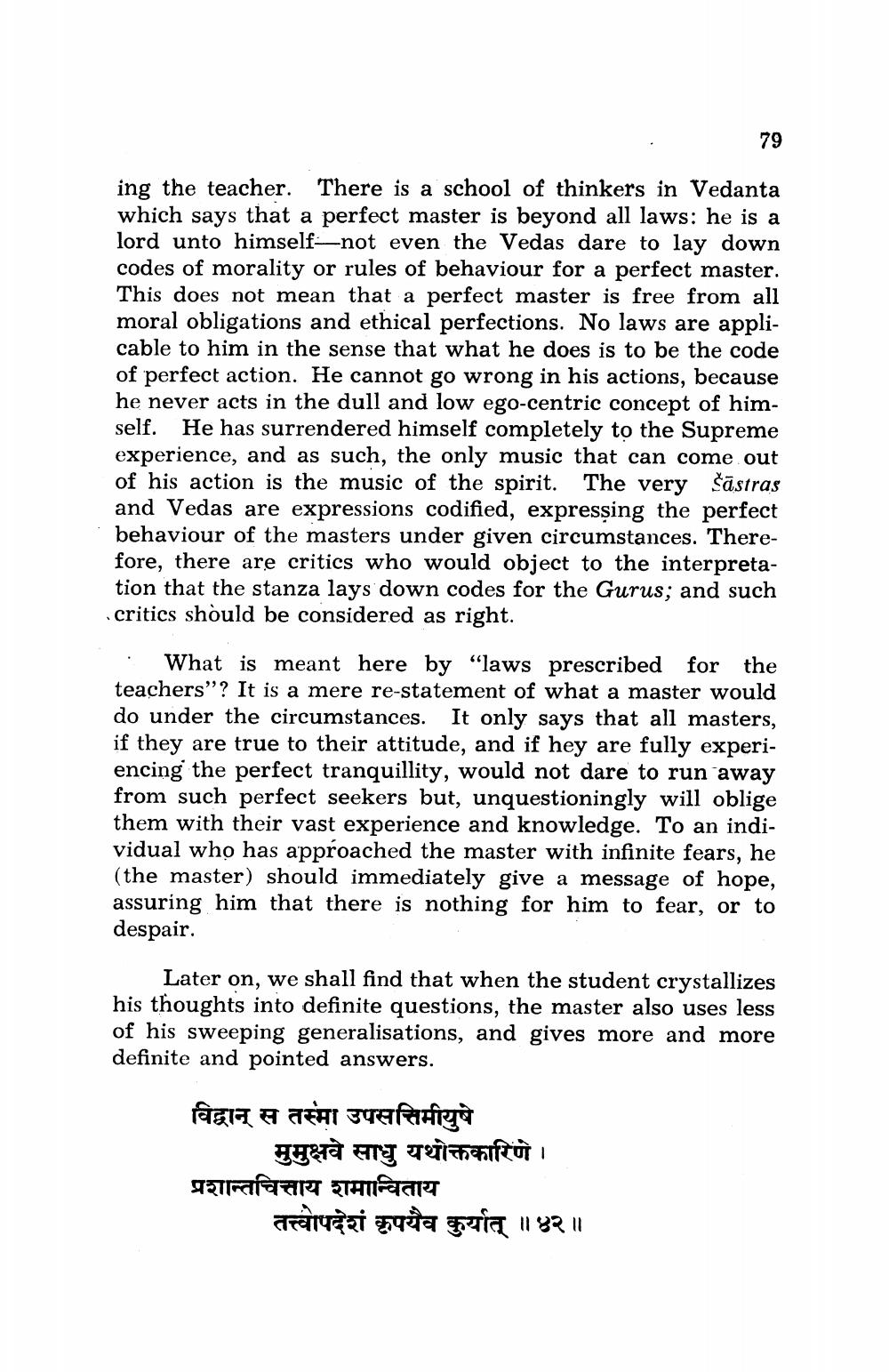________________
ing the teacher. There is a school of thinkers in Vedanta which says that a perfect master is beyond all laws: he is a lord unto himself not even the Vedas dare to lay down codes of morality or rules of behaviour for a perfect master. This does not mean that a perfect master is free from all moral obligations and ethical perfections. No laws are applicable to him in the sense that what he does is to be the code of perfect action. He cannot go wrong in his actions, because he never acts in the dull and low ego-centric concept of himself. He has surrendered himself completely to the Supreme experience, and as such, the only music that can come out of his action is the music of the spirit. The very Sastras and Vedas are expressions codified, expressing the perfect behaviour of the masters under given circumstances. Therefore, there are critics who would object to the interpretation that the stanza lays down codes for the Gurus; and such critics should be considered as right.
What is meant here by "laws prescribed for the teachers"? It is a mere re-statement of what a master would do under the circumstances. It only says that all masters, if they are true to their attitude, and if hey are fully experiencing the perfect tranquillity, would not dare to run away from such perfect seekers but, unquestioningly will oblige them with their vast experience and knowledge. To an individual who has approached the master with infinite fears, he (the master) should immediately give a message of hope, assuring him that there is nothing for him to fear, or to despair.
Later on, we shall find that when the student crystallizes his thoughts into definite questions, the master also uses less of his sweeping generalisations, and gives more and more definite and pointed answers.
विद्वान् स तस्मा उपसत्तिमीयुषे
79
मुमुक्षवे साधु यथोक्तकारिणे ।
प्रशान्तचित्ताय शमान्विताय
तत्त्वोपदेशं कृपयैव कुर्यात् ॥ ४२ ॥




